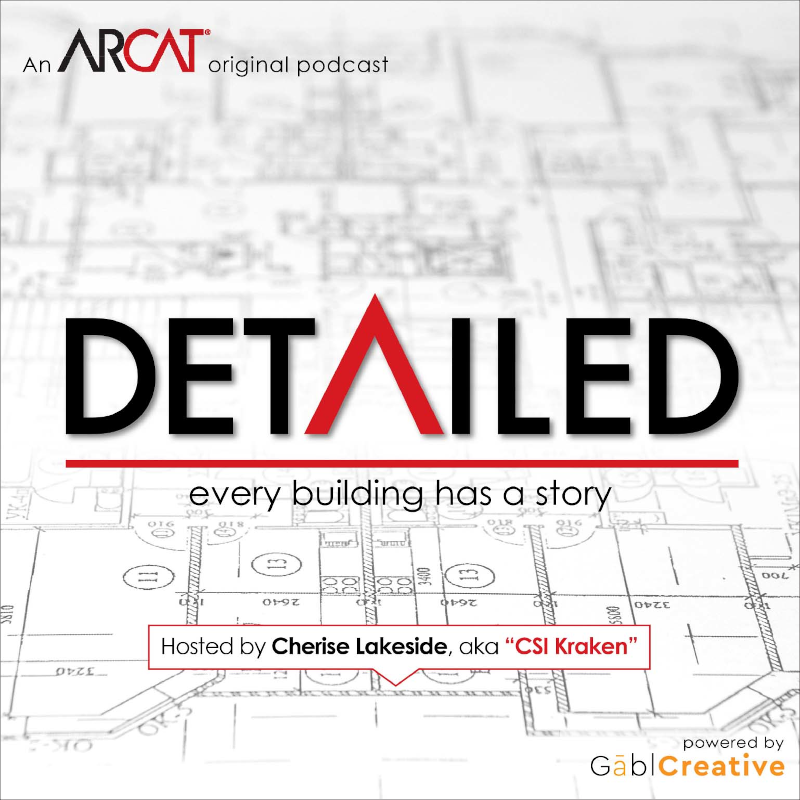|
Contributed by Elias Saltz At its January 26, 2016 chapter meeting, the Chicago Chapter of CSI was treated to a presentation by Ujjval Vyas, Ph.D., JD, entitled “From 19th Century Gentlemen to 21st Century professionals: Fiduciary Duties and the New Reality of A/E Practice.” What Vyas outlined during this talk amounts to a complete sea-change in the way architectural services are delivered. The “New Reality” Vyas presented isn’t reality yet but he demonstrates that it is coming about as the big insurance companies realize that his work has been thoroughly researched and has detailed and consistent logic and precedent. Once insurers are fully on board, architects will require an abruptly different mindset when it comes to their work. Licensed Learned Professionals There is a category of professional that includes doctors, lawyers and accountants that are all similar to one another in significant ways. They operate with state-granted monopoly (through licensure), their work involves significant financial or personal risk to their clients, and they enjoy a significant knowledge asymmetry between themselves and their clients in their areas of expertise. [1] Attributes for Some Licensed Learned Professionals [2] As indicated in this chart displayed by Vyas during his presentation, architects share numerous attributes with the other licensed learned professions, but architects somehow have not operated under the assumption that they have a fiduciary duty to their clients and instead use a contractual model usually based on AIA Contract Documents and/or professional liability tort notions based on around “standard of care.” I acknowledge my own lack of education around these complex concepts and have tried to make sense of them as best I can in order to communicate them here, but I’m certainly inaccurate in some measure of the specific detail. So what makes design professionals different from other licensed learned professionals in terms of fiduciary duty? In order to address this question, it’s first important to understand what is the fiduciary duty. What is the Fiduciary Duty? An excellent definition of fiduciary duty has been provided by Robert H. Sitkoff: "The law tends to impose fiduciary obligation in circumstances that present what economists call a principal–agent or agency problem. An agency problem arises whenever one person, theprincipal, engages another person, the agent, to undertake imperfectly observable discretionary actions that affect the welfare of the principal. Agency problems therefore arise not only in relationships governed by the common law of agency, but also in trust law, corporate law, and a host of other contexts. Agency problems are pervasive because no one has the skills necessary to do everything for himself and because every undertaking has an opportunity cost. By delegating a task to an agent, the principal benefits from specialist service and is freed to undertake some other activity. But these benefits come at the cost of being made vulnerable to abuse if the agent is given discretion the exercise of which cannot easily be observed or verified. In such circumstances, the agent may be tempted to favor the agent’s interests when they diverge from those of the principal. The losses and other inefficiencies resulting from this misalignment of interests are called agency costs." [3] In general, a fiduciary duty exists in business relationships where there are asymmetries of power, knowledge or prestige and the client lacks capacity for oversight. It is an affirmative duty from the professional (agent) to the client (principal) and includes the requirement that the agent provide non-negligent services, fulfill the terms of any contractual elements of their engagements and fulfill duties of care and loyalty to the principal.
The care and loyalty of a fiduciary relationship is its most obvious differentiating property and is more readily understood in the medical and law arenas. When you visit your doctor, the practitioner (who is a learned professional licensed by the state to practice medicine) has a fiduciary duty to protect your interests and to use best professional judgment on your behalf. You lack the knowledge to diagnose and treat yourself; that’s the asymmetry of knowledge. The doctor has a duty to attempt to determine the cause of the symptoms and suggest a remedy, and to explain as well as possible what might happen, and obtain your informed consent for any treatments undertaken. This must be done without outside interests influencing the practitioner; only the doctor’s professional knowledge are brought to bear. In reality, there may be outside pressures impacting a doctor’s practice (reimbursement rates from insurance companies, for example, or the perceived risk of increased malpractice claim liability), but legally physicians must put their patients’ needs above those other considerations. As it stands right now, architects do not act as though they legally have a fiduciary duty to their clients. Vyas argues this is due to the history of the profession being one where instead of having clients, architects until would have patrons. In the modern world, the relationship between architects and clients is established in lengthy agreements outlining scope of services, various responsibilities, limitations of liability, and resolution of disputes. These documents include no understanding of the affirmative nature of fiduciary duty and the loyalty and knowledge it requires. [4] A building owner has a need (a new facility, for example), but no knowledge how to make it into reality. Under the fiduciary duty model, owners are entitled to expect that by hiring an architect, they’re getting someone who will understand their needs and translate them into technical information and at the same time will actively protect their interests by avoiding conflicts of interest and obtaining informed consent for any solutions proposed. As the model of practice changes to one of fiduciary duty, the profession becomes one based completely on providing services that are grounded in competency, objective building science, and the art of the profession will no longer involve arbitrary design moves but rather become the result of providing superb knowledge and judgment in the interest of owners. [5] Architects who can quickly adjust to and embrace the new regime could be very successful, while those who don’t could see their markets diminished. One of the big changes that architects will need to incorporate is increased reliance on competently-produced complete and correct specifications. As specifiers have developed deeper understanding of building materials and systems, they are better positioned to verify architects’ designs achieve the performance criteria required by clients and help architects fulfill their fiduciary duty. Product manufacturers will also have an elevated duty to provide information that specifiers can rely on. This is obviously a complex topic and I fully admit that it has taken me a lot of time and numerous discussions to wrap my mind around. It will have wide-ranging impact on the design professions, whether or not the design professionals are ready for the changes this will cause to their practices. It will be fascinating to see what comes of it and how the profession reacts. I plan to offer further thoughts on this as it develops. [1] Vyas, Ujjval K. “From 19th Century Gentlemen to 21st Century professionals: Fiduciary Duties and the New Reality of A/E Practice” Presented to CSI Chicago Chapter January 26, 2016 [2] Adapted from Vyas, Ujjval K., “Matching Owner and Architect Expectations: Green Advocacy and the Necessity for Informed Consent” in Green Building and the Construction Lawyer: A Practical Guide to Transactional and Litigation Issues, ABA Forum on Construction Law, 2014, p. 126. [3] Sitkoff, Robert H. “An Economic Theory of Fiduciary Law.” Philosophical Foundations of Fiduciary Law Edited by Andrew Gold and Paul Miller, 2014, pp 198-199 [4] Beutler, Melissa A. and Vyas, Ujjval K., “When Green Turns Mean!” Paper given at ABA Forum on Construction Law 2016 Midwinter Meeting [5] ibid.
5 Comments
David Koons, CSI, CCS, LEED AP BD +C
9/20/2016 04:10:38 pm
This is a great article, and we should be exploring this further. LOL I disagree with the compensation comparisons with lawyers,dentists, and architects, but maybe East Coast architects get paid better than us in California. Because architects typically undercut each other on fees, the amount of money, and therefore time available to develop coordinated contract documents, is correspondingly lowered.
Reply
Elias Saltz
9/20/2016 10:17:37 pm
David, I want to address two of your points that seem pertinent in your comment.
Reply
Brent Redmon
9/28/2016 11:16:55 am
Our Senior Thesis Professor reminded us repeatedly that an Architecture is indeed a Profession and we should conduct ourselves accordingly. I wonder if this is being taught at all?
Reply
David Koons, CSI,CCS, LEED AP BD+C
9/28/2016 01:49:48 pm
I have worked on projects in many parts of the US. Different areas have different levels of oversight. Different projects ( say hospital vs a retail strip mall) get very different levels of inspection and oversight. Some counties don't even require a code analysis, or an exiting analysis in case of emergency situation. After Hurricane Katrina, one of my structural engineers want to New Orleans to assist reviewing the damage. He came back with pictures of foundations with not one hold done bolt... In other words, the houses were sitting on their foundations by gravity. This meant when water level rises, the houses just float away... He asked what building code they region uses, and he was told to mind His own business.
Reply
4/23/2018 05:41:44 pm
Before we all go marching off into Fiduciary Land as if it promises to somehow make us more important and thereby better compensated, it would behoove us to research just what a fiduciary relationship means, check the "state of the art" in current case law, and have some long conversations with our liability insurers and risk management advisers. I would be more convinced by this article if it cited case law examples showing trends that the courts agreed with the premise. I'm not seeing that here. But I do appreciate the effort to educate young practitioners regarding the seriousness of their current obligations to their clients, fiduciary or non-fiduciary.
Reply
Leave a Reply. |
AboutLet's Fix Construction is an avenue to offer creative solutions, separate myths from facts and erase misconceptions about the architecture, engineering and construction (AEC) industry. Check out Cherise's latest podcast
Get blog post notifications hereArchives
March 2022
Categories
All
|



 RSS Feed
RSS Feed
